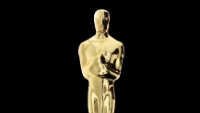Scientific & Technical Award winners announced

The Academy of Motion Pictures Arts and Sciences (AMPAS) has announced the 2009 winners of its Scientific & Technical Awards. The awards honor innovations that have contributed in significant ways to motion pictures.
Mark Wolforth and Tony Sedivy won for their contributions to the development of the Truelight real-time 3-D look-up table hardware system. Through the use of color management software and hardware, this system enables accurate color presentation in the digital intermediate preview process.
Dr. Klaus Anderle, Christian Baeker and Frank Billasch won for their contributions to the LUTher 3-D look-up table hardware device and color management software. The LUTher system was one of the first color look-up table processors to be widely adopted by the pioneering digital intermediate facilities in the industry.
Steve Sullivan, Kevin Wooley, Brett Allen and Colin Davidson will be honored for the development of the Imocap on-set performance capture system. Imocap successfully addresses the need for on-set, low-impact performance capture.
Hayden Landis, Ken McGaugh and Hilmar Koch won for advancing the technique of ambient occlusion rendering. Ambient occlusion has enabled a new level of realism in synthesized imagery and has become a standard tool for computer graphics lighting in motion pictures.
Bjorn Heden won for the design and mechanical engineering of the silent, two-stage planetary friction drive Heden Lens Motors. Per Christensen, Michael Bunnell and Christophe Hery won for the development of point-based rendering for indirect illumination and ambient occlusion.
Dr. Richard Kirk won for the overall design and development of the Truelight real-time 3-D look-up table hardware device and color management software. Volker Massmann, Markus Hasenzahl, Dr. Klaus Anderle and Andreas Loew were cited for the development of the Spirit 4K/2K film scanning system as used in the digital intermediate process for motion pictures.
Get the TV Tech Newsletter
The professional video industry's #1 source for news, trends and product and tech information. Sign up below.
Michael Cieslinski, Dr. Reimar Lenz and Bernd Brauner were named for the development of the ARRISCAN film scanner, enabling high-resolution, high-dynamic range, pin-registered film scanning for use in the digital intermediate process. Wolfgang Lempp, Theo Brown, Tony Sedivy and Dr. John Quartel won for the development of the Northlight film scanner, which enables high-resolution, pin-registered scanning in the motion picture digital intermediate process.
Steve Chapman, Martin Tlaskal, Darrin Smart and Dr. James Logie won for their contributions to the development of the Baselight color correction system, which enables real-time digital manipulation of motion picture imagery during the digital intermediate process.
Mark Jaszberenyi, Gyula Priskin and Tamas Perlaki were cited for their contributions to the development of the Lustre color correction system, which enables real-time digital manipulation of motion picture imagery during the digital intermediate process. Brad Walker, D. Scott Dewald, Bill Werner and Greg Pettitt won for their contributions furthering the design and refinement of the Texas Instruments DLP Projector technology, achieving a level of performance that enabled color-accurate digital intermediate previews of motion pictures.
Fujifilm, Ryoji Nishimura, Masaaki Miki and Youichi Hosoya won for the design and development of Fujicolor ETERNA-RDI digital intermediate film, which was designed exclusively to reproduce motion picture digital masters. Paul Debevec, Tim Hawkins, John Monos and Mark Sagar were cited for the design and engineering of the Light Stage capture devices and the image-based facial rendering system developed for character relighting in motion pictures.
The awards will be presented in Beverly Hills, CA, on Feb. 20.
